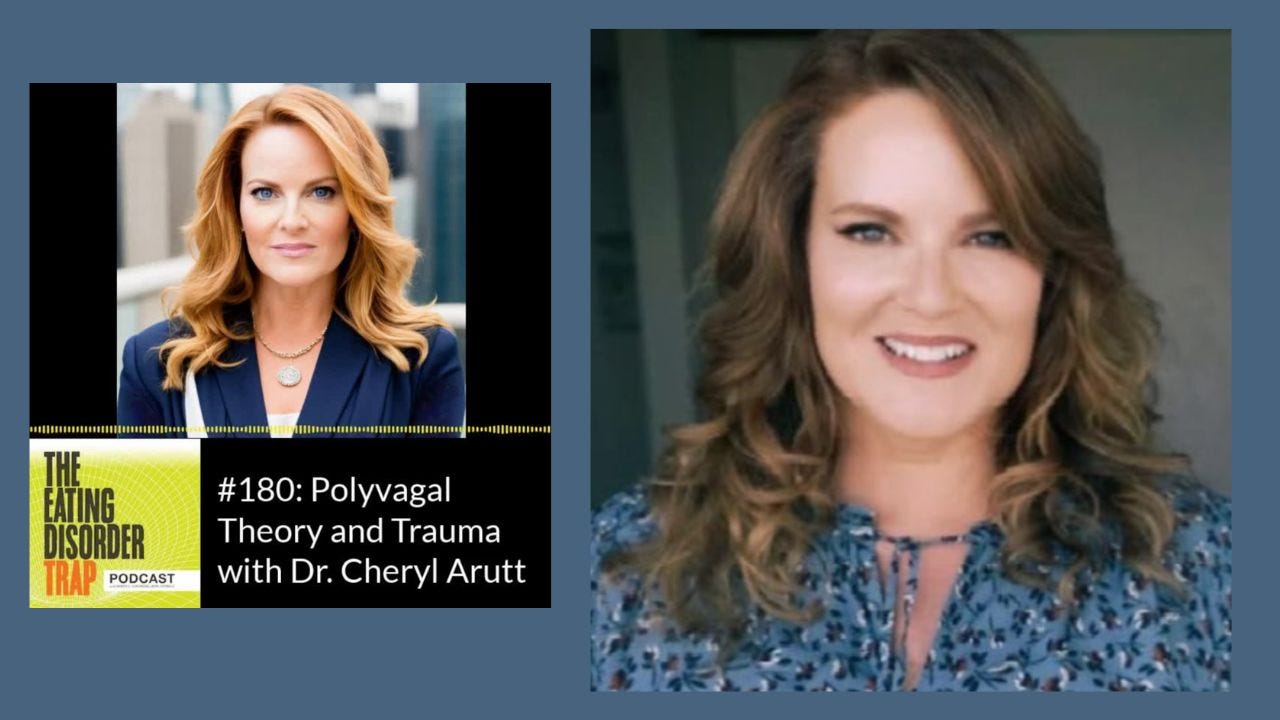Episode Details
Back to Episodes
How Polyvagal Theory and Therapy Help Trauma Recovery, with Dr. Cheryl Arutt
Description
Psychologist Cheryl Arutt has found with her therapy clients that "Creative artists, actors and writers and people who do performances, have a different relationship with their trauma than regular people who don't consider themselves creatives."
She notes “Polyvagal theory is a new way of thinking about the autonomic nervous system…the part with the things that our body does all on its own without thinking about it, like breathing and heart rate.
“We've learned about things like the fight or flight response and the sympathetic and parasympathetic nervous system, where a lot of times people know that when they need to fight or run away from something it's their sympathetic, and when they're relaxed, it's the parasympathetic.
“But Polyvagal Theory takes things further.”
(See the transcript for more quotes.)
Dr Arutt is a licensed clinical and forensic psychologist, certified EMDR therapist, and media consultant, and specializes in trauma recovery and creative artist issues.
Some variety and level of trauma affects most people, perhaps especially those of us who are creative and neurodivergent, with intense nervous systems.
This Creative Mind audio episode includes edited clips from her interview for The Eating Disorder Trap podcast by Robyn Goldberg, episode 180: Polyvagal Theory and Trauma with Dr. Cheryl Arutt.
Sites of Dr Arutt:
~~~~
Related:
▶️ Online course: Finding Safety in Your Nervous System by Deb Dana
Deb Dana, LCSW notes "The pathways to safety aren't always visible, especially if your early life didn’t show you the way. When stress, trauma, or chronic overwhelm shape our nervous systems, feeling safe can seem unfamiliar or even unreachable.
"But our biology is not fixed. It’s fluid, adaptable, and always inviting us back home. With practice, we begin to notice the subtle signs of safety: a breath that softens, a moment of stillness, the gentle presence of connection.
"And over time, we learn to trust those signals. To return to them more easily. To anchor ourselves, not in avoidance or escape, but in the deep intelligence of the body that knows how to heal." [from her program Finding Safety in Your Nervous System.]
...
▶️ Deb Dana is speaking at the Trauma Skills Program by Sounds True on "From Activation to Regulation: A Polyvagal Guided Approach
"When we feel threatened, our defenses go up and our ability to regulate our nervous system seems to go out the window. As a result, our trauma responses can get stuck in our bodies.
"Polyvagal Theory helps us understand the ways trauma shapes our nervous system - and how to identify the pathways that lead us back to healing."
...
⏩ See more books, courses and audio programs in the Deb Dana Collection at Sounds True.
~~~~
» Video list: Deb Dana, LCSW - Nervous System Health
~~~~~~~~~~~~~
Related posts and podcasts
~~~
More related posts and resources:
…
…
» Page of
Listen Now
Love PodBriefly?
If you like Podbriefly.com, please consider donating to support the ongoing development.
Support Us